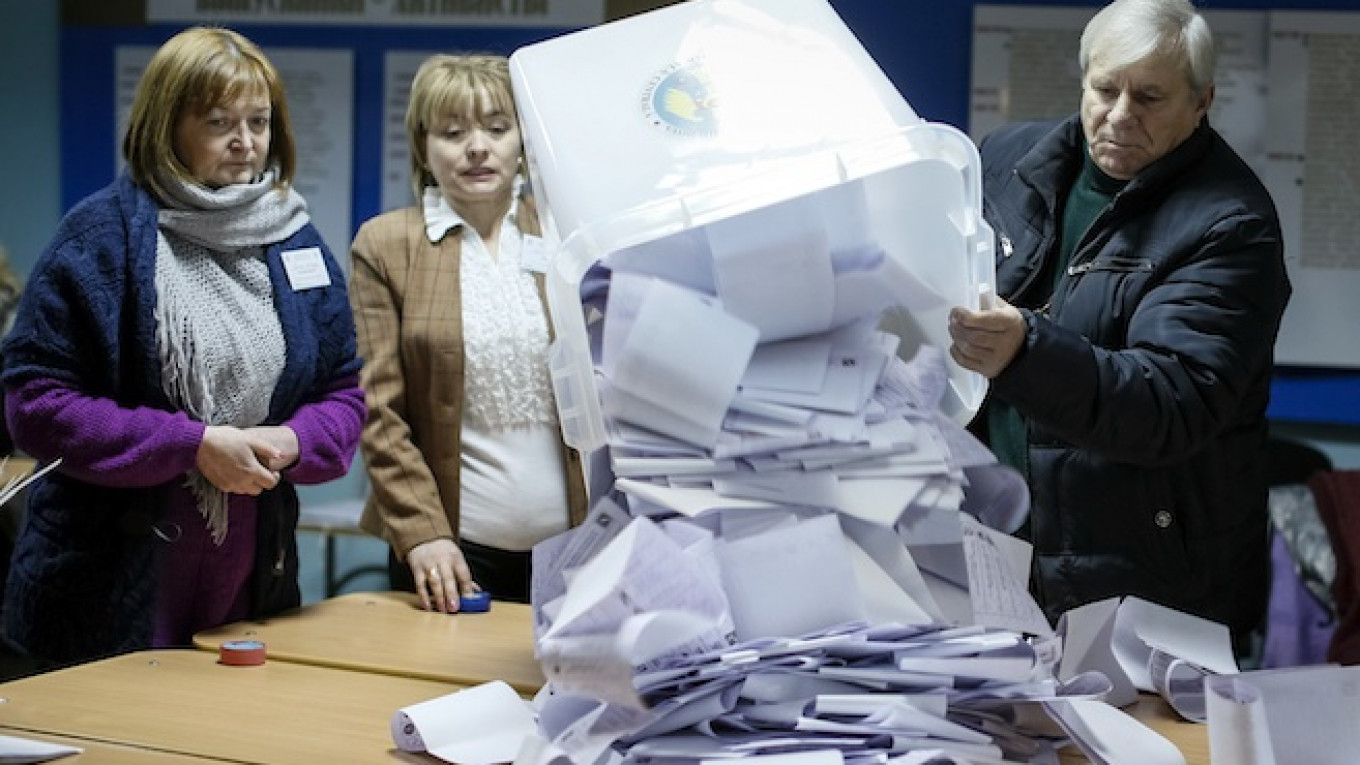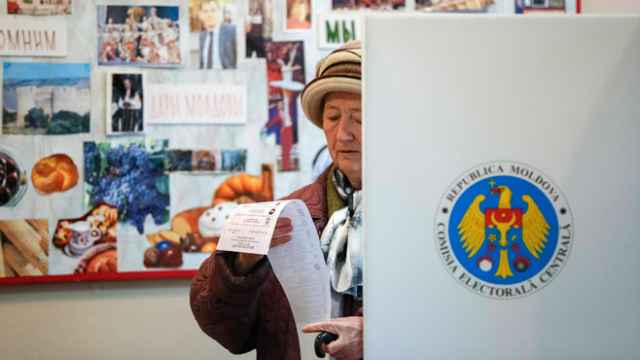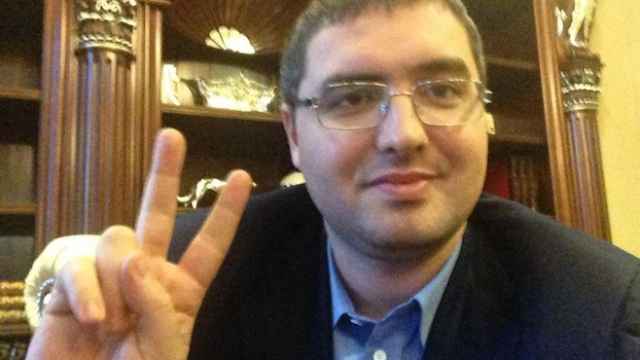CHISINAU — Moldova's pro-Europe parties appeared certain Monday of being able to form a new coalition to press on with a drive toward the European mainstream after elections even though the pro-Moscow Socialist Party took first place.
With almost all votes counted from Sunday's poll, election authorities said the Liberal Democrats, the Liberals and the Democratic Party had secured a combined vote of 44 percent, enough to win a simple majority in the 101-seat parliament and form a new government team.
But the strong showing by the socialists, who campaigned in favor of joining a Russia-led economic bloc rather than moving toward the European Union, took the edge off any jubilation by the pro-Europe lobby.
Socialist leader Igor Dodon said his party would form an opposition that would make "the European integrationists shake with fear."
The socialists' first-place position with a vote of 21.5 percent showed that many in one of Europe's smallest and poorest countries favor preserving traditional close ties with Russia.
"The main good news is that Moldova will continue its course toward Europe," former parliament speaker Marian Lupu, leader of the Democratic Party and a main figure in a three-party coalition that has governed since 2009, said in a news conference.
"The wish of the people to live in peace and integrate with the EU is a basic fundamental for negotiations for a new coalition," Lupu said.
Organization for Security and Cooperation in Europe (OSCE) monitors said the election had been well-run but it criticized a ban on a party run by Russian businessman Renato Usatii on the grounds that it had been funded from abroad.
"A largely well-run election offered voters the opportunity to choose their preferred candidates and even geopolitical aspirations, which was at the heart of the campaign," said Emin Еnen, leader of the OSCE observer mission.
The country of 3.5 million, wedged between Ukraine and Romania, in July ratified a political and trade agreement with the EU — a move that means turning away from a future in a Russia-led Customs Union as advocated by the socialists.
Moldovans went into the election aware of the separatist war in Ukraine triggered by Kiev embarking on similar pro-Europe policies that set it on a collision course with Moscow.
Though Moscow has so far shown no readiness to intervene as it has in Ukraine, it has shown its displeasure by banning imports of wines, vegetables and meat from Moldova, whose economy relies on agricultural exports.
Former Prime Minister Vlad Filat, who leads the coalition's Liberal Democrats, dismissed the socialists' strong performance as a "stage directed spectacle … the result of Russia's Vladimir Putin."
The next weeks will be dominated by bargaining among the parties, almost certainly involving the communists who lay in third place, to hammer out a working arrangement. A government may not emerge until the New Year.
The coalition's poor record of tackling corruption and conducting deep reform, as well as in-fighting among its leaders, appeared to have cost it support at the ballot box.
Relations are poor between Filat and former acting president Mihai Ghimpu, leader of the Liberals, and are always likely to put any coalition formed under strain.
Filat, at the news conference, said he had already had initial talks with Lupu on a new coalition and he defended the coalition's record.
"We have come out of it with four-five seats fewer. But if you consider that we have directed the country for five years while a war was going on in eastern Ukraine, plus a global crisis and a Russian embargo, we have not done too badly," he said.
A Message from The Moscow Times:
Dear readers,
We are facing unprecedented challenges. Russia's Prosecutor General's Office has designated The Moscow Times as an "undesirable" organization, criminalizing our work and putting our staff at risk of prosecution. This follows our earlier unjust labeling as a "foreign agent."
These actions are direct attempts to silence independent journalism in Russia. The authorities claim our work "discredits the decisions of the Russian leadership." We see things differently: we strive to provide accurate, unbiased reporting on Russia.
We, the journalists of The Moscow Times, refuse to be silenced. But to continue our work, we need your help.
Your support, no matter how small, makes a world of difference. If you can, please support us monthly starting from just $2. It's quick to set up, and every contribution makes a significant impact.
By supporting The Moscow Times, you're defending open, independent journalism in the face of repression. Thank you for standing with us.
Remind me later.






